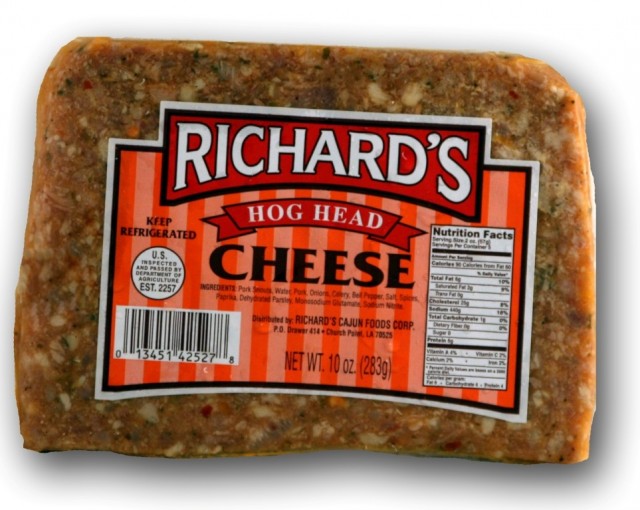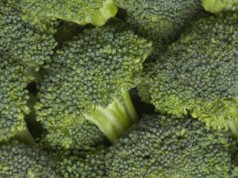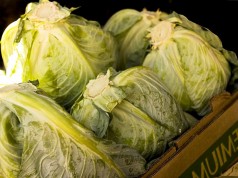
HOUSTON (AP) — A Houston head cheese maker is recalling almost 2½ tons of hog head cheese it says may be tainted with salmonella.
A Thursday statement from the U.S. Department of Agriculture says Stallings Head Cheese Co. is recalling 4,700 pounds of the cold cuts shipped to a distribution center for retail distribution in Louisiana and Southeast Texas.
The 10-ounce packages of Richard’s Hog Head Cheese bear the establishment number “EST.2257” inside the USDA inspection mark and sell-by dates “Use by 2 1 2013” or “Use by 3 20 2013.”
The products have been linked to six recent cases of salmonella treated in Louisiana.
Hog head cheese is a gelatinous mixture of meat from a hog’s head popular in Cajun cuisine.
Salmonella contamination can cause fever, diarrhea, nausea, vomiting and abdominal pain.
More than 125,000 people in the U.S. are hospitalized and 3,000 people die from food borne illnesses each year according to the Center for Disease Control and Prevention (CDC).
After Salmonella is eaten it passes through the stomach to the intestine. Here, it binds to the wall of the intestine, and through some special proteins that it makes in response to the particular conditions in the intestine it actually penetrates the barrier between us and the outside. Once it has gained access to our insides, it is taken to the liver or spleen. For most other bacteria, this journey would kill them, however Salmonella has evolved mechanisms to prevent our immune system from doing its job efficiently. In the liver, the Salmonella can grow again, and be released back into the intestine.
Of course, not all of the Salmonella pass through the intestinal wall, and many of them are expelled from the intestine in the diarrhea. In regions with poor sanitation, these bacteria can than survive in the soil or in rivers and infect the next person, cow, chicken or mouse that comes along.
What can I do to prevent Salmonella infections?
The best way of avoiding Salmonella infections is make sure that everything is thoroughly cooked.
Other precautions as suggested by the USDA include:
- Wash Hands and Surfaces Often
- Wash your hands, cutting boards, dishes etc with hot soapy water before handling food.
- Separate raw meat, poultry, and seafood from other foods in your refrigerator.
- Cook to Proper Temperatures
- Refrigerate Promptly







